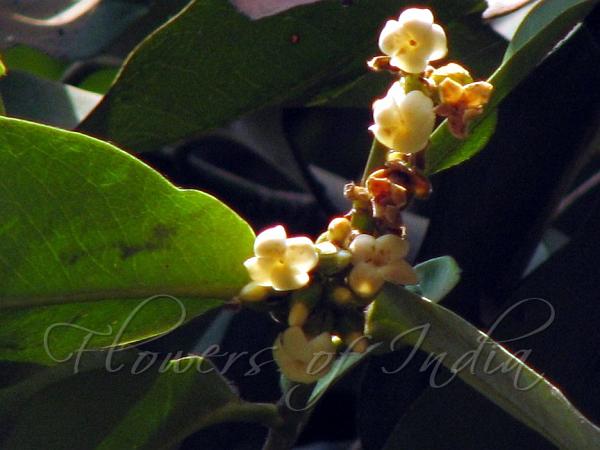|
| Mabolo |
|

|

| File size | 100768 |
| Original date | 4/9/11 10:36 AM |
| Resolution | 936 x 702 |
| Flash | Flash did not fire, auto |
| Focal length | 72.0mm |
| Exposure time | 1/320s |
| Aperture | 4.0 |
| Focus Distance | |
| Metering Mode | Multi-segment |
| Camera make | Canon |
| Camera model | Canon PowerShot S5 IS |
| Sensor type | OneChipColorArea |
|
|
|
|
Photo: |
Botanical name: Diospyros philippinensis Family: Ebenaceae (Ebony family)
Mabolo is an errect tree about 18-33 m, with stout, black, furrowed trunk
reaching 80 cm thick. It is slow-growing and evergreen. The leaves are
alternate, oblong, pointed at the apex, rounded or pointed at the base,
15-22.8 cm long, 5-9 cm wide,leathery, dark- green, smooth and glossy on
the upper surface, silvery-hairy underneath. The flowers are tubular,
4-lobed, waxy, faintly fragrant, on short stalk. Male flowers are 6 mm
wide, in small clusters, and female flowers, 12.5 mm wide, solitary, and
are borne on separate trees.The fruit is oval or oblate, 5-10 cm wide, has
thin, pink, brownish, yellow, orange or purple-red skin, densely coated
with short, golden-brown or coppery hairs, and is capped at the base with
a dull-green, stiff calyx. The fruits are often borne in pairs, very close
together on opposite sides of a branch. A strong, unpleasant, cheese-like
odor is given off by the whole fruit. It is moist but not very juicy, more
or less sweet flavored. There may be 4-8 brown, smooth, wedge-shaped
seeds, about 4 cm long and 2.5 cm wide, standing in a circle around the
central core, though the fruits are often completely seedless. Each seed
is covered with a whitish membrane that is transparent when fresh, and
opaque when dried. Mabolo is native to Indonesia and Philippines.
| Identification credit: Prashant Awale, Renne Vyas | Photographed at Jijamata Udyan, Mumbai. |
• Is this flower misidentified? If yes,